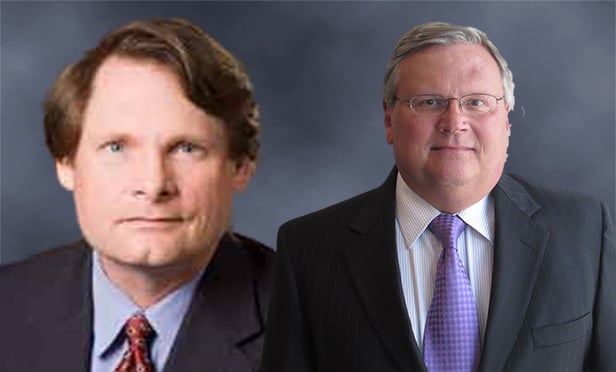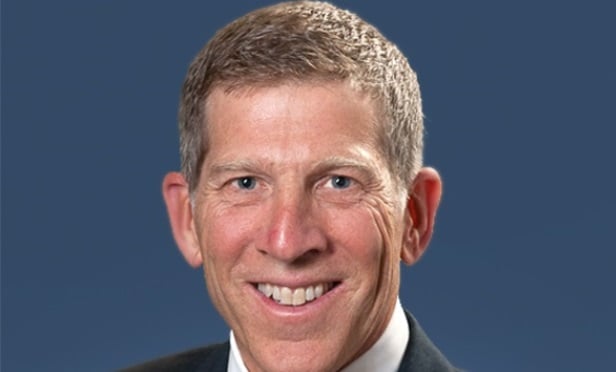SAN DIEGO-With wide-open access to equity and debt this year, some analysts say there is too much capital being raised for REIT investment, according to a panel this week on capital markets during NAREIT’s REITWorld trade conference here. The panel, moderated by Edward Walter, president and CEO of Host Hotels & Resorts Inc., revealed that inexpensive debt is causing more borrowers to fill in the spaces with equity and unsecured debt, and product is being priced aggressively.
Panelist Michael Graziano, managing director of Goldman Sachs & Co., said the unsecured market debt is so strong that the “faucets could not be more open right now. REIT spreads have come in via corporate spreads,” bearing out unprecedented numbers, and investors are looking at how much they can prepay.
“There’s a massive movement toward unsecured debt,” echoed Michael Bilerman, managing director and head of real estate and lodging research at Citi.
Graziano added that CMBS has not been as aggressive as other lenders and has plenty of competition as a function of cost, and Jeffrey Horowitz, global head of real estate, gaming and lodging for Bank of America Merrill Lynch, said that any number of banks will give equity on commercial real estate right now.
Capital certainly does seem available. The lenders are in an “aggressive mode to enhance our balance sheet—we want to lend to bigger players with larger assets,” said Horowitz. Also, Graziano said that construction financing is “out there,” and both big and small companies have “wide-open access to equity this year.” Bilerman, however, did express some concern over “blind raising of capital.”
With mutual fund flows holding up fairly well, Walter asked the panelists who’s investing in mutual funds this year, to which Bilerman replied the market has gone global, with investors from Japan, China, Europe, Canada, Australia and Singapore all showing interest in mutual funds. “There are always new sources coming in.”
Walter also asked how the low cost of capital is impacting asset values, and Graziano answered, “People can afford to be really aggressive in what they pay for an asset, which is driving prices up. But the fundamentals must match up—you wouldn’t buy an asset at any price just because you can finance it cheap.”
Bilerman said the cost and availability of capital is the number-one driver of sales. “It’s the search for yield,” concurred Graziano, and Walter added that investors need to be smart about how they value any asset.
When asked how rising treasuries would affect valuations, Bilerman said, “How much better could it get? There’s room in REIT cap rates for interest rates to rise and for spreads to narrow, but there’s not a massive risk of that in the next 12-24 months.”
With regard to mergers and acquisitions, Graziano maintained that “fit and match are important for M&A—you can make up the math, but you can’t make up fit.” Horowitz said there’s not a lot of public M&A, and Bilerman added, “The synergies are really low and the CEO’s name is on the door,” preventing some M&A’s from occurring.
Still, there’s a general desire for fewer companies. But, as Walter points out, management teams have defined their strategies so precisely by investor mandates that “the more defined you become, it’s harder to find others who fit with that.”
When predicting where the next three years will take the REIT investment market, the panelists agreed that interest rates will be higher, the REIT index will be up and multiples down. Bilerman predicted that the REIT industry will be bigger by 2015.
During the Q&A session, Graziano said that pricing will move along where it is for the foreseeable future. A question about federal tax reform’s impact on the market was raised, and Walter said, “I would be surprised if they try to do something that messes it up. Bilerman pointed out that REIT dividends are excluded from the Bush-era tax cuts anyway, so REITs may be more attractive than other investments that suddenly are taxable. He also predicted that more tax revenue would not come from the expiring tax cuts, and Walter added, “We may be a bigger contributor to bottom-line taxes than we would be in another format.”
Cantor Fitzgerald’s REIT analyst David Toti recently told GlobeSt.com, “REITs are performing pretty significantly today. What we’ve seen in the last couple of quarters in REITs is a higher risk appetite from investors. They’re looking for a higher yield, higher leverage and smaller capital gains. The reason global investors like REITs is, aside from the pretty good dividend yield, they have the security of hard assets backing them, and earnings have long visibility because of the underlying leases.”
As GlobeSt.com previously reported, a new report by Ernst & Young LLP entitled 2012 Global Perspectives says that the only country outside the US in which REITs had the ability to raise equity through secondary offerings was Japan during Q1. The report also found that IPOs were wholly an American REIT phenomenon, with US REIT formation accounting for 75% of the $2.4 billion in IPO activity in six markets, including Australia, France, Japan, Singapore, UK and US.
Want to continue reading?
Become a Free ALM Digital Reader.
Once you are an ALM Digital Member, you’ll receive:
- Breaking commercial real estate news and analysis, on-site and via our newsletters and custom alerts
- Educational webcasts, white papers, and ebooks from industry thought leaders
- Critical coverage of the property casualty insurance and financial advisory markets on our other ALM sites, PropertyCasualty360 and ThinkAdvisor
Already have an account? Sign In Now
*May exclude premium content© 2024 ALM Global, LLC, All Rights Reserved. Request academic re-use from www.copyright.com. All other uses, submit a request to [email protected]. For more information visit Asset & Logo Licensing.








